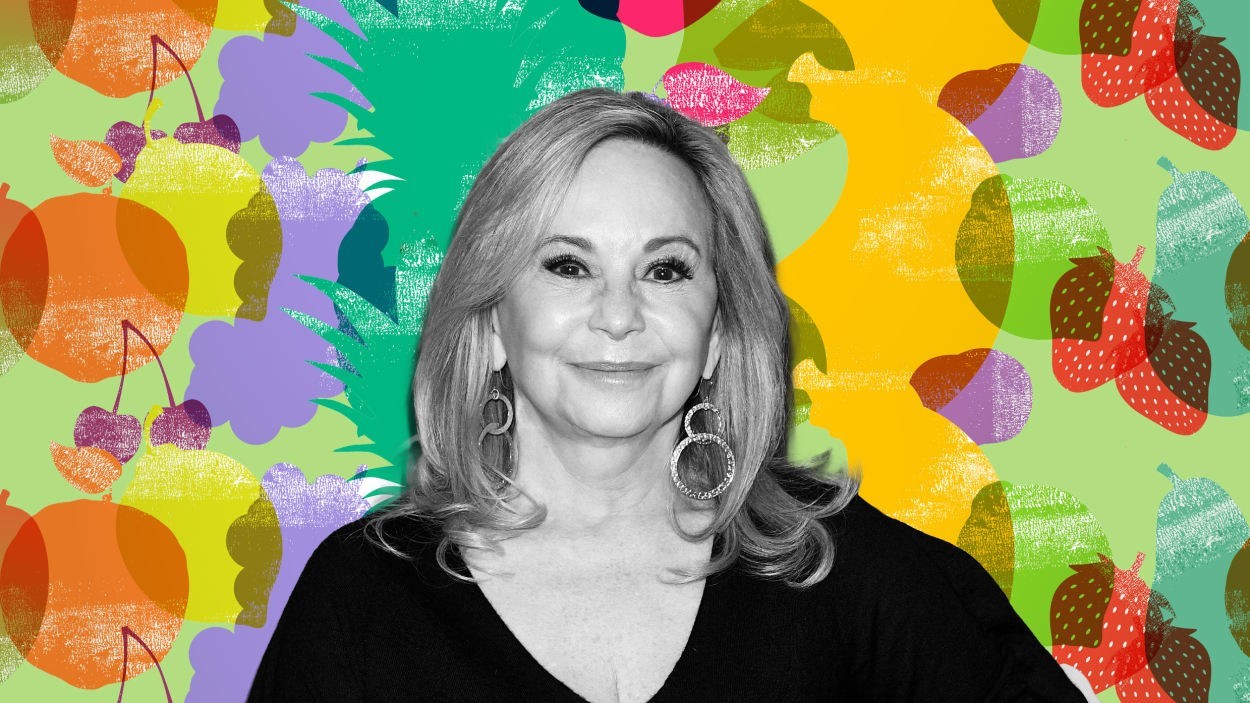Julie Wainwright led Pets.com and The RealReal to IPOs. Why she’s back with a new nutrition startup
Julie Wainwright, the former CEO of Pets.com and The RealReal, blew her first paycheck from her first job at Clorox in the 1980s on art. “I remember thinking, oh no, what if I can’t pay my rent? I swear to God. That was pretty stupid,” she says. Now, Wainwright doesn’t just purchase artwork because she likes it: she’s got a dealer. She’s been scanning auction prices on Artnet. “I want to make sure the art has value in case I want to sell it,” she says. “I work too hard.”
Today, Wainwright’s barely lived-in, louchely glamorous Tribeca pied-à-terre on the 34th floor of the neo-Gothic Woolworth building has been designed around her art collection. Wearing four-inch strappy heels, she shows me around one morning in late September. “I try to get as many female artists as possible,” she says, pointing to works by Tara Donovan, Helen Pashgian, and Julie Mehretu.
Wainwright, 66 and primarily based in Los Angeles, also notes pieces by the recently deceased Sam Gilliam and Peter Alexander as she seems increasingly preoccupied with mortality. In June, a press release circulated about her new company, a personalized supplement and nutrition platform Ahara. Now, the company is ready to come out of beta testing.
She says she was inspired to start Ahara after watching her father—an artist in his own right—die from complications due to obesity in the midst of COVID-19. “He had a heart attack when he was 72. Instead of using that as a wake-up call, he gained 100 pounds,” she says.
Around that time, although she’d been seeing the same celebrity doctor Melina Jampolis—who is now also her Ahara cofounder—for the past 15 years, she’d gained 20 pounds due to a relationship. “I was with someone who loved eating. I’m not a person that will sit down to a five-hour meal, but this person would. He enjoyed his food and enjoyed his wine. This man I was dating could eat a lot, and he was fine. But I was eating half of what he was eating, and I still gained.”
Opening her fridge—stocked with little besides a variety of bottled waters—Wainwright grabs a couple of Poland Springs (I decline a Fiji water) before we sit at her translucent plastic dining table under a sculptural bronze light. The day before, she’d attended a Women’s Wear Daily conference. There were fertility tests in the goodie bag from Proov; Wainwright gives them to me, saying she has no use for them.
Wainwright doesn’t want to dwell too much on her previous startups, particularly the luxury clothing and accessory resale site The RealReal, which she founded in 2011 and left abruptly in 2022. “My aha moment for starting my own business was when a recruiter told me I was washed up. He said I’d never get a good job in the industry again. Every job he was showing me was crappy,” she says.
Though she raised more than $350 million in funding and took The RealReal public in 2019, the company’s path to profitability is still murky, and the company’s share price has fallen more than 90%. Wainwright tells me that she’s writing a business book that will include anecdotes from her career, and she wants to save some stories for that. Besides, a lot has been written. “There’s a new CEO,” I say. “I won’t comment,” she responds.
The first company she ran, online pet supply store Pets.com, raised $82.5 million in a February 2000 IPO, but filed for bankruptcy just nine months later as the dot-com crash took hold. “I got all the financing lined up and got the team together,” she says. “But the market shut, the window shut.”
According to Wainwright, this happens to all consumer-facing businesses. ”It goes through these phases. With Pets.com, the window shut. But the window was open for Instacart,” says referencing the grocery delivery’s recent IPO. Timing, to her, seems almost more important than business fundamentals.
Wainwright’s track record in getting companies public has allowed her to continue to be able to raise money from investors, even if the ultimate fate of her companies is less rosy. She’s raised more than $10 million for Ahara from the likes of Greycroft, Headline, and Shakti, each of which invested in The RealReal. She also put in some of her own money.
Ahara will operate on a freemium model: Users can take a free science-based questionnaire that will give them nutrition recommendations based on the information they share. A paid tier costing roughly $2,500 a year includes at-home tests for genetic, epigenetic, and biomarkers, in addition to the questionnaire. Once processed, the tests will generate recommendations for nutrient-specific meals, recipes, and shopping lists. There’s even a menu scanner that will recommend what to eat from a restaurant. Wainwright, who does not cook, uses it a lot.
Though she’s brought up weight gain a couple of times, she says that Ahara is not about that. Anyone can use it; the company simply helps users understand how we absorb different nutrients based on our genetics. All her life she hasn’t enjoyed the taste of fatty fish like salmon. Her tests showed that her body wasn’t processing omega-3s properly, she says. Now, she takes a supplement—the company white-labels supplements for users—to make sure she gets enough. She feels good, she tells me, and her nails got stronger.
Because it’s not a weight-loss app, Ahara is also not in conflict with Ozempic. Users can let Ahara know that they’re taking the medication, and it will adjust its recommendations accordingly. Influencers promoting the service will all be certified medical professionals. “There’s a lot of biohacker noise we need to cut through,” Wainwright says.
Across from us, a faint black line fades in and out of view on a stark white bead canvas by the artist Mary Corse. “Now this sort of makes me sad,” Wainwright says. “I went to her studio in California, and she said the center line represents a person. But sometimes it fades because sometimes you disappear because it’s too hard to be seen, or because of cultural things.”
Wainwright reckons she has “25 good years” left in her, and she plans on spending those working. The brain atrophies if you’re not solving problems, she says. “Rupert Murdoch just retired. He’s 92. Mentally he’s supposedly still great. But I do think you have to be cognizant you have a finite time.”
Her phone chimes, and Wainwright has to get going. She’s got a flight to the next thing in 40 minutes. As I walk past the undented S-shaped velvet couch on my way out, she points to some of her art again. “I mean think of [artist] Alex Katz. He’s 96 and out somewhere in Soho, probably in his studio today.”
(9)



